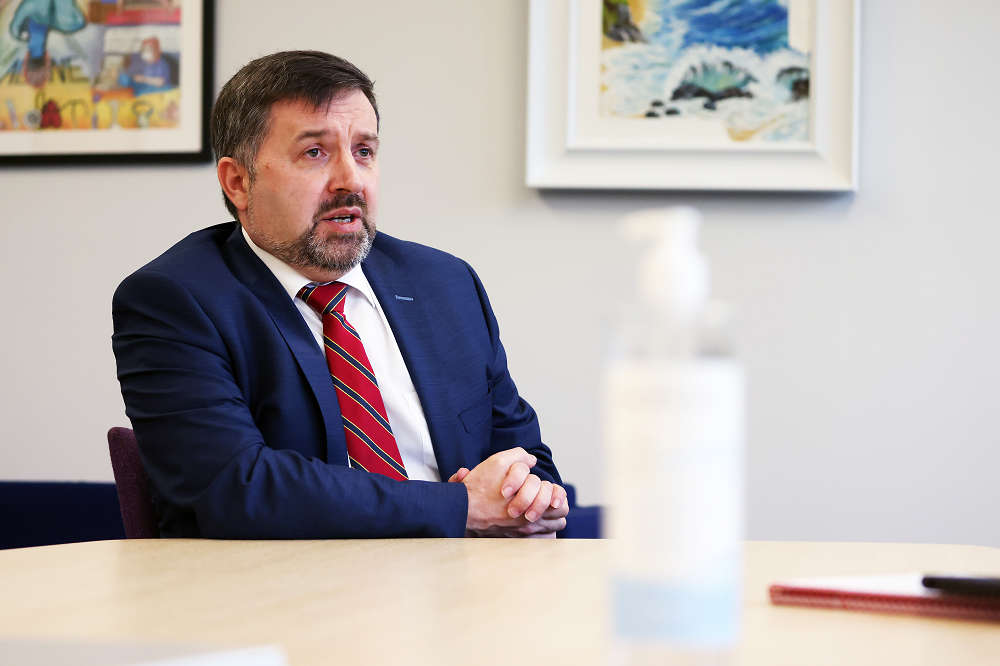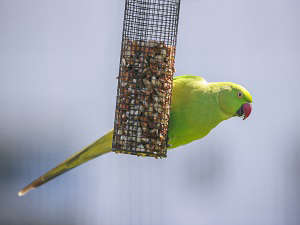
By Q Radio News/PA
The Health Minister has said the region has entered the new year in a better situation regarding Covid-19 than he feared it might be.
Robin Swann said worst-case forecasts about the Omicron variant have not materialised, with hospital admission rates and ICU admissions not as high as in previous waves of the virus.
Mr Swann said there was still a “bit of unknown” about Omicron and he cautioned against public complacency over the threat posed by the variant.
Northern Ireland is in a 'better place' than first feared with Omicron, according to the Health Minister.https://t.co/HIg0DJwBSg
— Q Radio News (@qnewsdesk) January 11, 2022
Asked if the region was now in a different position to what he thought it might have been in when ministers were engaged in pre-Christmas discussions on the potential for tighter restrictions in the new year, Mr Swann said: “Very much so.”
He said it showed “how quickly things can change with this virus”.
The minister added:
“When there was still so much unknown about Omicron, especially in regards to transmissibility, through to hospitalisations, through to severe hospitalisation into ICU, and even deaths – that was unknown in mid-December.
“So it was only right that we were cautious about what pressures we could be facing rather than sitting back and saying ‘let’s just wait and see’.”
Mr Swann said the vaccination programme was a major factor in why hospital admission rates were, to this point, not as intense as in previous coronavirus waves.
“When you take in comparison to the number of cases we have to hospitalisations, especially to ICU admissions as well, we are seeing quite a difference in this wave,” he said.
“But vaccination also has had a part to play in that.”
He continued: “Vaccination has been a game-changer.”
Mr Swann urged people to keep coming forward for jabs and continue to comply with the measures that are still in place.
“There is a risk of complacency but I think, like many in society, people want this to be over, we in the health service want this to be over as well.
“But it’s really how we get to that point – and it’s through vaccination but also by following the guidance and the regulations that are currently there so we can get to that space.
“That complacency has always been a danger to us.
"Because if people start letting their guard down and start reverting back to those behaviours that we know actually spread and increase the risk of transmission, that’s when the challenges start to come in again and we see numbers going up, we see hospitalisations going up and we see those pressures in ICU.
“We’re not seeing that to the extent we have in previous waves. So that’s a bonus, that’s a positive.
“But vaccinations have played a big part in it.”



 Bikers to descend on Westminster for veterans protest against Legacy Act repeal
Bikers to descend on Westminster for veterans protest against Legacy Act repeal
 Guidance sought over future of colourful parakeets in Belfast park
Guidance sought over future of colourful parakeets in Belfast park
 Woman released after questioning over pipe bombs in Co Down
Woman released after questioning over pipe bombs in Co Down
 Suspended chief constable will not be prosecuted over alleged sexual offences
Suspended chief constable will not be prosecuted over alleged sexual offences
 MI5 files not deliberately withheld from Stakeknife probe, review concludes
MI5 files not deliberately withheld from Stakeknife probe, review concludes